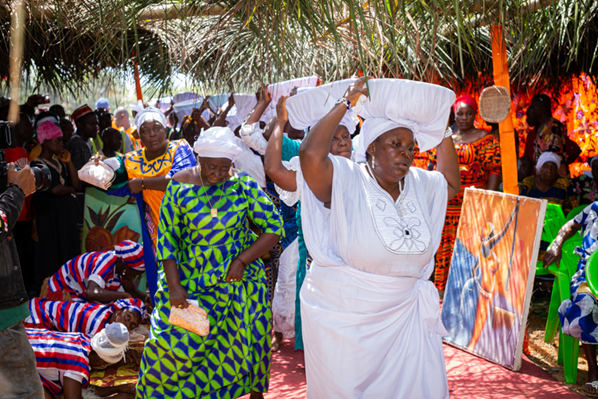Longevity, influence and the social media trap: Who do we trust with our health?
In a world where six-pack abs are flaunted more than six-point health plans, who are we really trusting […]

A Gambian women’s rights activist and founder of Women in Liberation and Leadership, Fatou Beldeh, has vehemently opposed a parliamentary bill sponsored by lawmaker Almami Gibba with the backing of some members that seeks to lift the ban on Female Genital Mutilation (FGM).
The FGM ban embodied in the Women's (Amendment) Act 2015 was passed in 2015 by President Yahaya Jammeh to, amongst other things, ban harmful practices against women and young girls in the country.
However, since 2023, the law has been under threat as calls for its repeal intensified. Beldeh fears that a repeal of the law would open the floodgates for not only abuses against women and girls but also encourage cross-border cutting of girls.
“Whatever comes out of this threat to repeal the law will set a precedent, especially for African countries where FGM is practiced. Presently, the reason that policymakers are giving is that people at the community level want the FGM ban to be lifted so that they can continue the practice. The other reason is that Female Genital Mutilation is a religious requirement in Islam. If this law is repealed, it will open the vacuum for girls to be continually cut. It will encourage other countries not to pass laws to ban it. It will also open the doors for cross-border cutting. For example, families in Senegal will cross over and have their girls cut,” she told Global South World.
Referencing UNSDG Target 5.3 on the elimination of FGM by 2030, Beldeh said this goal will not be achieved once the anti-FGM law is repealed in the Gambia due to the ripple effect such actions would have on neighbouring countries.
Speaking on the attempts being made to withhold the repeal, she added, “We have been requesting a permit to protest for months, which we have not been granted. Often, we don’t even get a response about the protest. There was a dialogue between the national assembly members and citizens, and we used that opportunity to go to the House (parliament), and we mobilised survivors and men who support the ban to go and speak to the national assembly members on how it is so important to maintain the law. To also make them understand that the narrative out there that the communities want this law to be repealed is not actually true.”
Further berating the silence by the president and other relevant ministries and stakeholders, she noted, “Since this debate started about the repeal, the government has not taken any stance; they remain silent, and for us that speak volumes, including the Ministry of Gender, they still remain silent, which shows their lack of commitment to women and girls in this country. Despite the government being a signatory to regional and international treaties to protect women and girls."
As per the existing legislation in the Gambia, an individual found guilty of carrying out Female Genital Mutilation (FGM) can be sentenced to a maximum of three years in prison, fined up to 50,000 dalasi (approximately $730), or face both penalties. In cases where FGM results in a fatality, the perpetrator may be subject to life imprisonment under the law.
Female Genital Mutilation (FGM) is a harmful practice that entails the cutting of female genitalia, typically performed on young girls. It involves the removal of the labia and clitoris, leading to lifelong health complications. These can include severe bleeding, infections, persistent vaginal pain, and infertility. FGM not only poses immediate health risks but also has long-term consequences that affect the physical and mental well-being of girls and women subjected to it.
Globally, an estimated 200 million girls and women have undergone female genital mutilation (FGM), a traditional cultural practice recognised as a form of violence against women and girls. As part of the 2030 Sustainable Development Agenda, United Nations Member States have pledged to eradicate FGM by 2030, as outlined in SDG Target 5.3.

In a world where six-pack abs are flaunted more than six-point health plans, who are we really trusting […]

In the era of social media, post-COVID, and with mental health at the forefront, a shift is taking […]